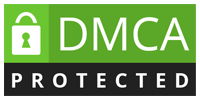Remote work and cyber vulnerability
How criminals get your data
The most common first point of entry for cyber criminals was corporate-owned servers (34%) and corporate cloud servicers (also 34%). Once hackers gained access to corporate servers, the most common outcome for small businesses was IT resource misuse, such as using IT infrastructure to mine cryptocurrency, as happened in one-third of cases.
Business are trying to keep up with their partners’ demands too
In addition to concerns about their own vulnerability to cyber attacks, small businesses are feeling pressure to comply with the requirements their business partners have for security. In fact, 20% of small businesses said complying with the security requirements of partners was their most critical priority over the next 12 months. Slightly fewer (18%) said their top priority was addressing existing threats and vulnerabilities.
Hackers are taking advantage of the pandemic
Cyber criminals have always been opportunistic, and, for them, the pandemic is another – very lucrative - opportunity.
“Small business is big business for cyber criminals, and that’s only been exacerbated during the pandemic.
“Small businesses have had a difficult time in the past year, but it’s essential to keep on top of cyber security. Cyber criminals are voracious in adapting and mutating their viruses, and continuous education and preparation serves as our digital face mask.”
What you can do to protect your business
Take a three-step approach to protecting your business against cyber incidents.
1. Prevent an attack from happening in the first place.
Hold your remote workers to the same standard you apply to those who are (or were) in the office. This means providing appropriate security no matter where the work takes place. Make sure all your employees know how to identify a phishing email and whom to contact if they suspect a breach.
2. Detect an attack early.
The earlier you realize that something is wrong, the quicker you can act to contain the damage. Having the right resources to call on – and calling on them – is critical.
3. Mitigate the impact on your bottom line.
If you use computers, collect customer data or use electronic payments, you should have cyber security insurance. The cost of insurance is far less than the cost of a single breach, and its value goes well beyond that.
#cybersecuritybook













.gif)
0 Comments